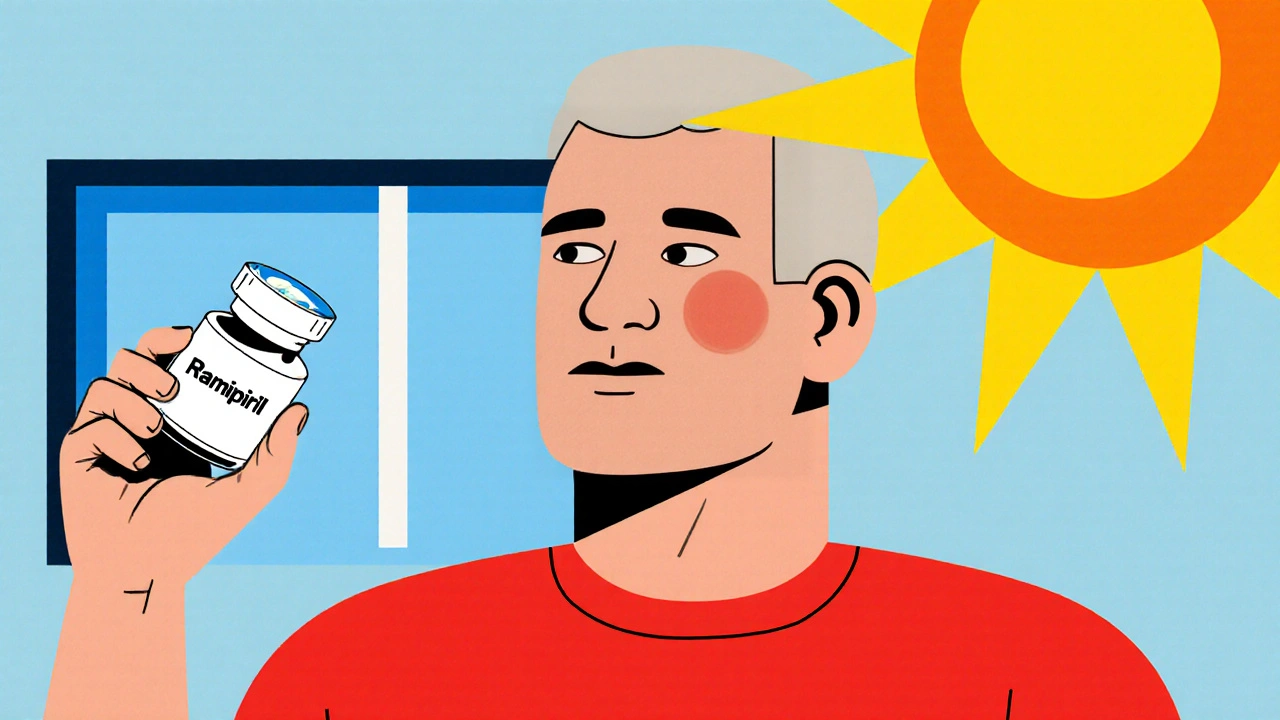Sun Sensitivity: What Causes It and Which Medications Make It Worse
When your skin reacts badly to sunlight—not just with a mild tan but with rashes, burns, or blisters—you’re dealing with sun sensitivity, a condition where the skin overreacts to UV exposure, often due to medications or underlying health issues. Also known as photosensitivity, it’s not just bad luck in the sun—it’s often a side effect of something you’re taking daily. Many people think sunburn is just from too much time outdoors, but if you’re on certain pills and still get burned quickly, even with sunscreen, your medication might be the real culprit.
Drugs like antidepressants, medications used to treat mood disorders, some of which are known to increase skin reactivity to UV light, can make your skin more vulnerable. For example, SSRIs and tricyclics like Elavil aren’t just affecting your brain—they’re lowering your skin’s natural defense against sunlight. Then there are QT-prolonging drugs, medications that affect heart rhythm but also carry hidden risks like increased sun sensitivity. These include some antibiotics, antifungals, and even heart medications. Even over-the-counter pain relievers like ibuprofen or naproxen can trigger reactions in people who didn’t used to have them.
It’s not just about avoiding the sun. Sun sensitivity can show up hours or even days after exposure, making it hard to connect the dots. You might think your rash is from laundry detergent or a new lotion, but if you started a new pill last week, that’s the likely trigger. The good news? You don’t always have to stop your medication. Timing matters—taking pills at night, avoiding direct sun between 10 a.m. and 4 p.m., and wearing UPF clothing can make a big difference. Some people need stronger sunscreens with zinc oxide or titanium dioxide, not just chemical filters.
What’s surprising is how many people don’t realize their meds are the problem. If you’ve had the same prescription for months and suddenly your skin starts reacting, it’s not your skin changing—it’s the way your body is now processing the drug. That’s why checking side effects isn’t enough. You need to know which drugs are linked to photosensitivity, and which ones are more likely to cause severe reactions. This collection of posts dives into exactly that: the hidden connections between everyday pills and sun damage, from antidepressants to diuretics to pain relievers. You’ll find real-world advice on how to protect yourself without giving up your treatment—and what to ask your doctor next time you refill a prescription.

Ramipril and Sun Sensitivity: How to Safeguard Your Skin
- Oct, 22 2025
- 11
Learn how Ramipril can heighten sun sensitivity and discover practical steps-sunscreen, clothing, timing-to protect your skin while staying on this essential medication.
Categories
- Health and Medicine (62)
- Health and Wellness (57)
- Medicine (37)
- Women's Health (11)
- Mental Health (9)
- Men's Health (7)
- Beauty and Wellness (4)
- Health Information (4)
Archives
- February 2026 (8)
- January 2026 (25)
- December 2025 (28)
- November 2025 (25)
- October 2025 (27)
- September 2025 (14)
- August 2025 (3)
- July 2025 (2)
- June 2025 (2)
- May 2025 (3)
- April 2025 (4)
- March 2025 (4)
- online pharmacy
- medication safety
- dietary supplement
- health benefits
- dietary supplements
- generic drugs
- prevention
- fertility
- online pharmacy Australia
- side effects
- QT prolongation
- medication side effects
- diabetes medications
- GLP-1 agonists
- nocebo effect
- brand vs generic
- treatment
- treatment options
- benefits
- connection
